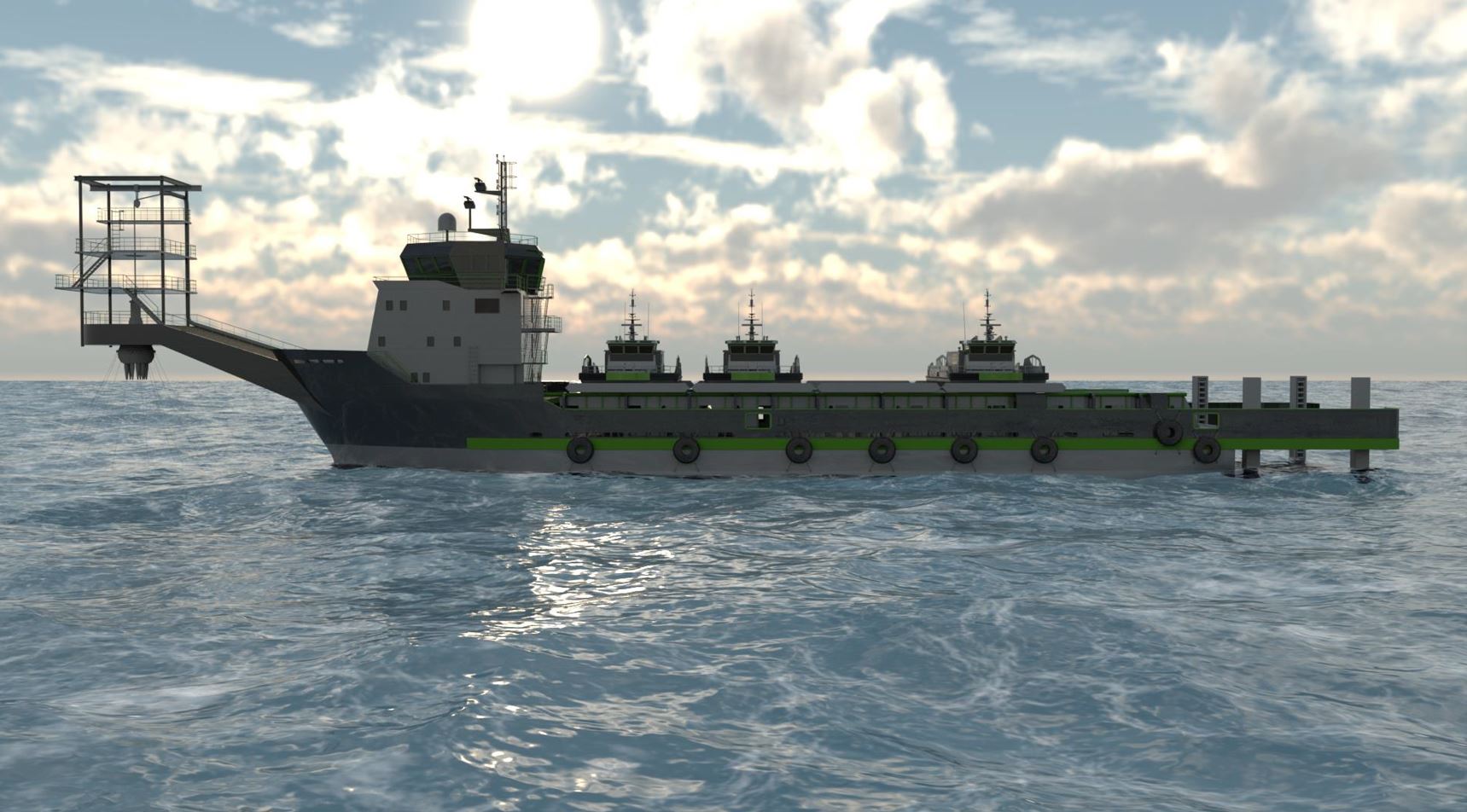
The Class NK-approved energy storage system will allow CTVs to swap their modular battery systems while providing a zero-emission service to the Japanese offshore wind sector.
The fully-electric mothership will operate as the hotel and charging station for the electric daughter vessels that will either be stowed on deck or returned to shore for near-shore operations.
When the charge is low, these CTVs will return to the mothership to dock at the stern, allowing for the spent batteries (e-pods) to be lifted and replaced with fully charged ones within minutes, said Shift.
“This groundbreaking technology is a game changer, allowing vessels to quickly adopt electric energy while dealing with the space and weight constraints that CTVs and other smaller vessels experience when seeking a solution to reduce carbon emissions and improve operating costs”, said John Kecsmar, Naval Architect and Owner of Ad Hoc.
The Zephyrus Zero Carbon Offshore wind service operation will utilise the batteries on a pay-as-you-go energy subscription service. As a result, vessels can utilise only the energy they need without committing to a fixed energy storage system, according to Shift.
In addition, the company also said that swapping modular batteries could take between 3-15 minutes, unlike traditional refueling which can take hours.
“We need to make it easy for shipowners and the offshore wind sector to go zero carbon. By partnering with Mirai Ships in building our unique solution, we can move the needle towards a net-zero shipping industry and we can do so while improving the operational cost and reducing the risk profiles within the offshore Japanese wind sector”, said Rob Stewart, Director at Zephyrus.